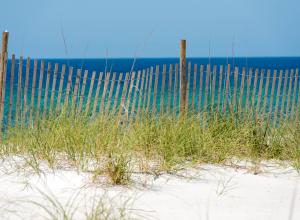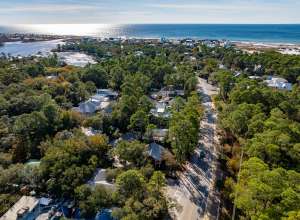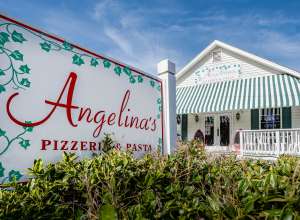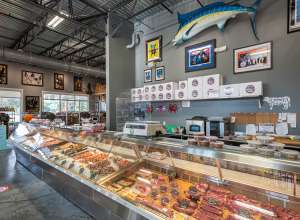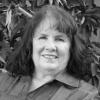Story
SoWal Spotlight: Cypress Cattle and Produce Company
March 21, 2012 by Karen McGee

In days gone by, outdoor produce markets like the venerable “Cotton’s” dotted the landscape along the major highways of Walton County. Today they're gone, but at the Cypress Cattle and Produce Market on US 331 North you can buy fresh produce and participate in the latest trend to “buy local” by perusing a variety of vegetables that have been raised on the Langford farm right here in Walton County.
Luke Langford and his wife Lorie operate the produce store, where you may find potatoes, cabbage, bok choy, tomatoes, broccoli, arugula, peppers, turnips or herbs grown locally on their 1,100-acre farm.
Four generations of Langfords have been farming in Walton and Holmes Counties (their farm straddles the line of both) in North Florida for the past 80 years. During the Depression they started on red potatoes and sugar cane, then raised dairy cattle and operated dairy parlors until the 1990s when changes in the economics of dairy farming influenced Luke’s father, Ken, to move into beef cattle.
“Today, we sell grain-fed, grass-finished, locally raised beef,” Luke tells me. “It’s a better grade of beef than you can generally get in a supermarket.”
When the Cypress Cattle and Produce store opened a year ago, just south of the Hwy. 331 and Hwy. 20 intersection, I was pleased to find a place that offered locally grown vegetable--and gardening advice as well.
While choosing yellow squash grown at Cypress Cattle Farms, I mentioned to Luke that I’d been unable to get the plants in my own backyard garden to produce mature squash. Even after following the advice of the experts at the local county extension service, my yellow squash still produced small vegetables that soon fell off. “Bees,” Luke said immediately, “You need enough bees to pollinate the squash, otherwise you’ll have the same results you’ve seen.”
Since I’m not planning on setting up a hive in my “south of 30A” backyard to be able to entice the bees to my small squash plot, I planted collards instead and just purchase “locally grown” yellow squash. What I like about visiting the produce store is that Luke or his staff will tell you where the potatoes or tomatoes come from if not from their farm. And I feel more comfortable knowing that the sweet potatoes arrived in Walton County from nearby Mississippi rather than California. Or that the watermelons were grown in central Florida.
Luke explains that he hadn’t planned to farm or run a produce store when he finished a business degree in housing at Florida State University. He worked in the construction business until 2004, when he returned to farming on a full-time basis.
In 2004, he and family were looking to spread the risk around. They started selling to Wal Mart and although that company eventually changed their business model and “Wal Mart was good to us, very good to us,” Luke remarks.
Eventually, the Langfords moved on from trying to market 300 boxes of squash at a time to the large vegetable brokerage markets in Birmingham or Atlanta to building a local business, which now involves growing some 30 plus commodities.
To take a closer look at their latest venture, greenhouse and shade house production, Tom and I drove out to their farm, where Luke, his father Ken, and James Birch were planting 100 acres acres in irish potatoes that day.
Those “ugly tomatoes” that you find in the supermarket? It’s amazing to see them hanging on 10 feet tall tomato plants in the 100 foot long greenhouse at Cypress Cattle. The family just started experimenting with tomatoes this past year and are moving into growing peppers, eggplants, and squash in the greenhouses. That’s in addition to the rows of field grown veggies like cabbage, kale, collards, broccoli, and spinach.
I’d advise you to stop in this pleasant store on Highway 331 North if you’re in the market for vegetables or beef that once called Walton County “home”. And if you’re lucky, you’ll get there on a day when Cypress Cattle is also offering fresh shrimp harvested by local shrimper Bruce McCullough or a sack of Florida oysters in season.
